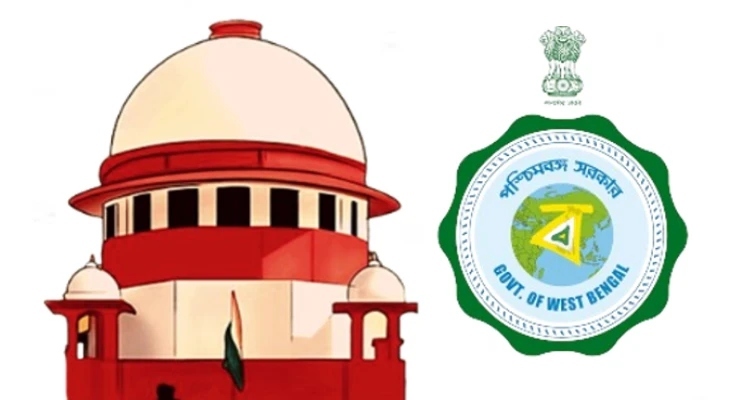
The West Bengal government on Tuesday requested additional time to respond to the submissions filed by litigants in a case concerning the Calcutta High Court verdict that struck down the OBC status of several castes, predominantly Muslim groups, in the state. This status had granted these groups reservation in public sector jobs and admissions in state-run educational institutions.
The Supreme Court was scheduled to hear the state government’s appeal, along with other related petitions, on Tuesday. However, Senior Advocate Kapil Sibal, representing the state government, informed a bench comprising Chief Justice D Y Chandrachud and Justices J B Pardiwala and Manoj Misra that bulky documents had been submitted by the opposing side, and he required more time to respond.
“I need time to respond to them,” Sibal stated.
The Chief Justice then remarked, “We will list the matter in the Monday week,” referring to the week commencing from September 2.
On August 20, the state government had sought an urgent hearing on its plea against the high court’s decision. The bench subsequently ordered the case to be listed for August 27.
At that time, Sibal had argued, “We need a stay of the high court’s verdict… the issue of scholarships is pending, and the NEET admissions will be affected,” urging the plea to be heard on the same day.
Previously, on August 5, the Supreme Court had asked the state government to provide quantifiable data on the social and economic backwardness of the new castes it had included in the OBC list, as well as on their inadequate representation in public sector jobs.
While issuing notices to the private litigants on the state government’s plea against the high court verdict, the court had directed West Bengal to file an affidavit detailing the consultations, if any, conducted by the state and its backward classes panel before including 37 castes, mostly Muslim groups, in the OBC list.
On May 22, the Calcutta High Court had struck down the OBC status of several castes in West Bengal, granted since 2010, ruling their reservation in public sector jobs and state-run educational institutions as illegal.
In its ruling, the high court stated that “religion indeed appears to have been the sole criterion” for declaring these communities as OBCs. The court expressed its view that the selection of 77 classes of Muslims as backward was an “affront to the Muslim community as a whole.”
The bench further remarked that it was not free from doubt that “the said community (Muslims) has been treated as a commodity for political ends,” as evidenced by the events leading to the classification of the 77 classes as OBCs and their inclusion as a vote bank.
The high court’s judgment, passed in response to petitions challenging the provisions of the state’s reservation Act of 2012 and the reservations granted in 2010, clarified that the services of individuals from the struck-down classes, who are already employed or have benefited from reservation or succeeded in any state selection process, will not be affected by the order.
Additionally, the high court struck down the reservation of 37 classes under The West Bengal Backward Classes (Other than Scheduled Castes and Scheduled Tribes) (Reservation of Vacancies in Services and Posts) Act, 2012, citing non-consultation with the West Bengal Backward Classes Commission.
The court also invalidated an executive order dated May 11, 2012, that created several sub-classes. The high court ruled that these directions would take effect prospectively.




